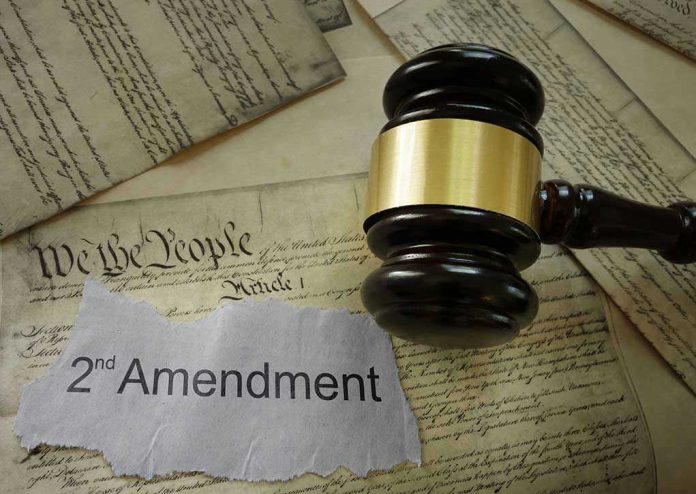
One Florida judge’s ruling just flung open a legal door most Americans didn’t realize was even locked—prompting a national debate over whether young adults have the right to defend themselves with concealed carry.
Story Highlights
- Florida’s ban on concealed carry for 18–20-year-olds has been ruled unconstitutional by a state judge.
- The decision reignites the constitutional debate on the Second Amendment and the age of legal adulthood.
- Opponents argue public safety; supporters cite constitutional rights and legal inconsistencies.
- The ruling could inspire similar legal challenges nationwide, reshaping gun laws for a new generation.
Florida’s Concealed Carry Age Battle Hits the Courts
Broward Circuit Judge Frank Ledee shattered legal assumptions by ruling that Florida’s prohibition against concealed carry for 18–20-year-olds violates the Constitution. The decision did not come quietly. For years, Florida law barred adults under 21 from carrying concealed weapons, citing public safety and the need for maturity in handling firearms. Judge Ledee’s verdict challenges that rationale, stating point blank that age alone cannot justify stripping away constitutional rights.
This decision now poses a direct question to every state official: can a state define adulthood for gun rights separately from other legal responsibilities? The judge’s answer is an emphatic no, setting the stage for a rapidly escalating legal and political showdown.
The Constitutional Argument: Where Rights and Age Collide
Supporters of the ruling argue that the Second Amendment, as interpreted by the Supreme Court, does not allow states to arbitrarily create age-based carve-outs for fundamental rights. Eighteen-year-olds in America can vote, enlist in the military, enter contracts, and face adult criminal penalties. Yet, until now, Florida said they could not legally protect themselves with a concealed firearm. This inconsistency fueled the legal challenge, with the court framing it as a matter of equal rights under the law.
Opponents, including gun control advocates and some law enforcement officials, warn that the risks outweigh the rights. They point to studies suggesting that younger adults are statistically more likely to be involved in impulsive or risky behavior, and argue that lowering the concealed carry age could increase gun violence. Judge Ledee countered that such concerns, while understandable, cannot override explicit constitutional protections unless the state can offer compelling, narrowly tailored evidence—something he found lacking in the state’s argument.
National Ripples: Could This Decision Change Gun Laws Elsewhere?
Florida’s legal earthquake may send tremors across the country. Several states have similar age restrictions on concealed carry, and gun rights organizations are already signaling plans to challenge those laws using Judge Ledee’s decision as a legal blueprint. The ruling lands at a moment when the Supreme Court has shown a willingness to expand Second Amendment protections, and any appeals process could set up a showdown at the nation’s highest court.
Meanwhile, state legislatures are caught in the crossfire. Lawmakers face mounting pressure to either revise gun statutes or double down on existing restrictions, knowing that either path could ignite political backlash. The debate has already spilled into the 2026 election cycle, with candidates staking out strong positions on what it means to be an adult—and what rights that adulthood should include.
What Does It Mean to Be an Adult in America?
The Florida case forces a broader reckoning with America’s fractured definition of adulthood. If society trusts 18-year-olds with the vote, jury duty, and military service, can it reasonably deny them the right to bear arms for self-defense? Or does the unique lethality of firearms justify a higher bar? The answer, for now, is anything but settled. Florida’s judiciary has fired the first shot in what promises to be a long, loud national conversation—one that will test the boundaries of constitutional law, public safety, and the very meaning of adulthood.
Until appeals play out, Florida’s 18–20-year-olds are, at least temporarily, recognized as full participants in the right to self-defense. Whether other states will follow—and how Washington will respond—remains to be seen. But the legal groundwork has been laid, and the battle over the age of the Second Amendment is far from over.
Sources:
Judge: Florida’s Ban Against Concealed Carry by 18–20-Year-Olds is Unconstitutional




